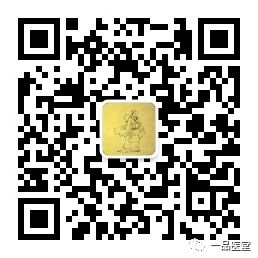In Traditional Chinese Medicine (TCM), insomnia is referred to as bumei (不寐), budewoh (不得卧), and mubuming (目不瞑). The pathogenesis is primarily attributed to excessive Yang heat, deficiency of Yin and blood, and the loss of Shen (spirit) function. However, the clinical application of nourishing Yin, subduing Yang, and nourishing blood to calm the spirit sometimes yields limited results.
Emphasizing the role of Yang Qi in sleep, and treating based on the characteristics of insomnia with a focus on differential diagnosis, significantly enhances clinical efficacy.
Sleep is a cyclical activity centered around the Four Seasons, Five Organs, and Yin-Yang, fundamentally rooted in Yin-Yang and based on the Five Organs, corresponding with day and night.
Although sleep is closely related to the Heart and Shen, Ying and Wei, and the essence and Qi of the Five Organs, it fundamentally relies on Yin-Yang.
As one of the most basic life activities, sleep is influenced by the warmth and promotion of Yang Qi.
The Ling Shu states: “When Yang Qi is exhausted and Yin Qi is abundant, the eyes cannot close; when Yin Qi is exhausted and Yang Qi is abundant, one cannot sleep.”
The Suwen mentions: “Yang Qi nourishes the spirit when it is refined, and when it is soft, it nourishes the tendons.”
The Ling Shu also states: “Wei Qi circulates during the day in Yang and at night in Yin; thus, when Yang Qi is exhausted, one sleeps, and when Yin Qi is exhausted, one awakens.”
The aforementioned roles of Yang Qi in sleep can be summarized into two aspects:
Firstly, the warming and nourishing function of Yang Qi.
Secondly, the movement of Yang Qi.
1. Causes of Yang Deficiency Insomnia
Sleep activities are fundamentally based on Yin-Yang, where Yang enters Yin is its essence. Any factor leading to the deficiency of Yang Qi can result in the loss of nourishment for the Shen, Wei Qi failing to warm, and the disordered circulation of Wei Qi, leading to insomnia.
The elderly are the primary group affected by Yang deficiency insomnia, as aging leads to a gradual decline in Yang Qi, resulting in the loss of nourishment for the Shen, Wei Qi failing to warm, and the inability of Yang to enter Yin, causing insomnia.
The causes are as follows:
Insufficient congenital endowment, lack of kidney essence and Qi, and insufficient transformation of Yin and Yang;
Frequent consumption of cold foods and prolonged exposure to cold and damp environments can damage Yang Qi over time;
Excessive work, staying up late, and indulgence can damage the essence in the kidneys, leading to Yang deficiency over time;
Chronic illness or severe illness can deplete Zheng Qi, which can eventually affect Yang;
Certain medications such as antibiotics, hormones, immunosuppressants, and cold-natured herbs can also lead to Yang deficiency.
2. Pathogenesis of Yang Deficiency Insomnia
Yang Qi nourishes the spirit; when the spirit is calm, sleep can occur.
The Jingyue Quanshu states: “Qi is Yang, and Yang governs the spirit.” Qi generates the spirit; when Qi is strong, the spirit is calm; when Qi is weak, the spirit is disturbed. When Yang enters Yin, one can sleep; when Yang Qi is weak and cannot enter Yin, one cannot sleep.
Sleep is based on Yin-Yang and grounded in the Five Organs, with Yang deficiency primarily affecting the Heart, Spleen, and Kidneys.
Heart Yang not only warms the blood vessels and promotes blood circulation but also nourishes the spirit. When Heart Yang is deficient, the spirit is not nourished, leading to restlessness and insomnia.
Kidney Yang is the root of all Yang Qi in the body; the kidneys are the water organ, harboring true Yang, allowing Yang to enter Yin for sleep.
When Kidney Yang is deficient, it cannot contain and store Yang, making it difficult for Yang to enter Yin, leading to insomnia.
At the same time, with Kidney Yang deficiency, it cannot vaporize the true water in the kidneys upwards, leading to the Heart being deprived of nourishment, causing excessive Heart fire, and preventing sleep.
The Spleen and Stomach are located in the middle burner, serving as the pivot for ascending and descending, and the pathway for Yin-Yang intersection; deficiency of Middle Yang also affects sleep.
When Middle Yang is insufficient, the middle burner cannot regulate, and the pathway for Yin-Yang intersection is obstructed, leading to insomnia.
Additionally, the Spleen and Stomach govern transportation and transformation; when they are deficient, the metabolism of Qi, blood, and fluids becomes abnormal, leading to the accumulation of tangible pathogens that obstruct the intersection of Yin and Yang, preventing sleep.
Moreover, discussing insomnia from the perspective of Wei Qi also provides a basis for clinical differentiation.
Human Qi corresponds with the Qi of heaven and earth; during the day, the Yang Qi of the body is abundant, and Wei Qi circulates outward, leading to wakefulness for work and activity;
As the day progresses, the Yang Qi of the body gradually diminishes, and Wei Qi circulates from the surface to the Yin and the Five Organs, leading to fatigue and sleep.
03
Key Points for Differentiating Yang Deficiency Insomnia
① Inability to sleep through the night:
Yang Qi is deficient and cannot nourish the spirit; Wei Qi does not circulate normally, making it difficult to enter Yin, which can lead to inability to sleep through the night.
When Yang Qi is extremely weak, it floats above, and the floating Yang disturbs the spirit, causing restlessness and insomnia.
② Sleeping intermittently:
Although Yang Qi is weak, it is not completely exhausted, allowing for some entry into Yin, but it cannot settle in Yin, leading to shallow sleep and easy awakening.
③ Able to fall asleep but waking in the middle of the night and having difficulty falling back asleep.
Zhang Jingyue states: “After midnight, Qi rises, and Yang is abundant; after noon, Qi descends, and Yang declines.”
Yang Qi gradually rises at midnight, and when it is not at its peak, the floating Yang disturbs the spirit, hence one can fall asleep but wakes in the middle of the night.
It is worth noting that while Yang deficiency insomnia has these characteristics, not all cases exhibiting these characteristics can be diagnosed as Yang deficiency insomnia.
Yang deficiency is often accompanied by a variety of complex symptoms,
which can be primarily divided into manifestations of coldness due to Yang deficiency and manifestations of false heat due to floating Yang:
① Cold manifestations:
Yang Qi deficiency leads to loss of warmth in the body, reduced function, and manifests as cold characteristics, such as aversion to cold, cold limbs, cold pain in the lower back and knees, clear and frequent urination, tinnitus, cold essence, diarrhea from cold food, loose stools, and early morning diarrhea.
The tongue and pulse show a large, pale or dark purple tongue with a white coating, and some patients may have a tongue with straight grooves, resembling knife marks.
② False heat manifestations:
Yang Qi deficiency leads to floating Yang, resulting in manifestations of false heat, such as sweating on the chest and back, oral ulcers with pale ulcer surfaces, dry mouth without thirst, a rosy complexion, a tender tongue, a floating and rapid pulse, and weak or absent pulse upon deep palpation.
In summary, clinical differentiation first determines the characteristics of insomnia to see if they align with the sleep characteristics of Yang deficiency insomnia to grasp the overall picture;
Accompanying symptoms provide important clues for differentiation, requiring careful and comprehensive inquiry to discern the truth and direction of differentiation.
The tongue and pulse are the essence of differentiation, and finally, the differentiation is established based on the tongue and pulse.
In the treatment of Yang deficiency insomnia, the application of Tianxiong San from the Jin Kui Yao Lue after the Gui Zhi Long Gu Mu Li Tang formula is significant.
Formula composition:
Tianxiong 3 liang (pao), Bai Zhu 8 liang
Gui Zhi 6 liang, Long Gu 3 liang
This formula primarily focuses on warming and tonifying the Yang of the Spleen and Kidneys, supplemented by ingredients that astringe and subdue Yang, treating symptoms such as aversion to cold, cold lower back, impotence, frequent urination, or difficulty urinating, and male infertility.
Although it does not explicitly mention treating insomnia, it aligns with the pathogenesis, as Yang deficiency fails to nourish the spirit, and Yang does not enter Yin, leading to insomnia.
Tianxiong is a great warming and pure Yang substance, effective in assisting Yang to warm the life gate;
Gui Zhi complements Tianxiong to enhance the source of fire and invigorate Kidney Yang Qi;
Long Gu astringes essence and calms the spirit, subduing the floating Yang;
Bai Zhu, together with Tianxiong, tonifies the postnatal foundation, collectively tonifying the Spleen and Kidneys.
Kidney Yang is the root of all Yang Qi in the body; warming and tonifying the Yang of the Spleen and Kidneys can replenish the Yang Qi of the entire body.
When combined, these herbs can tonify Yang, warm Yang, assist Yang, and subdue floating Yang, helping Yang enter Yin, thus treating Yang deficiency insomnia.


